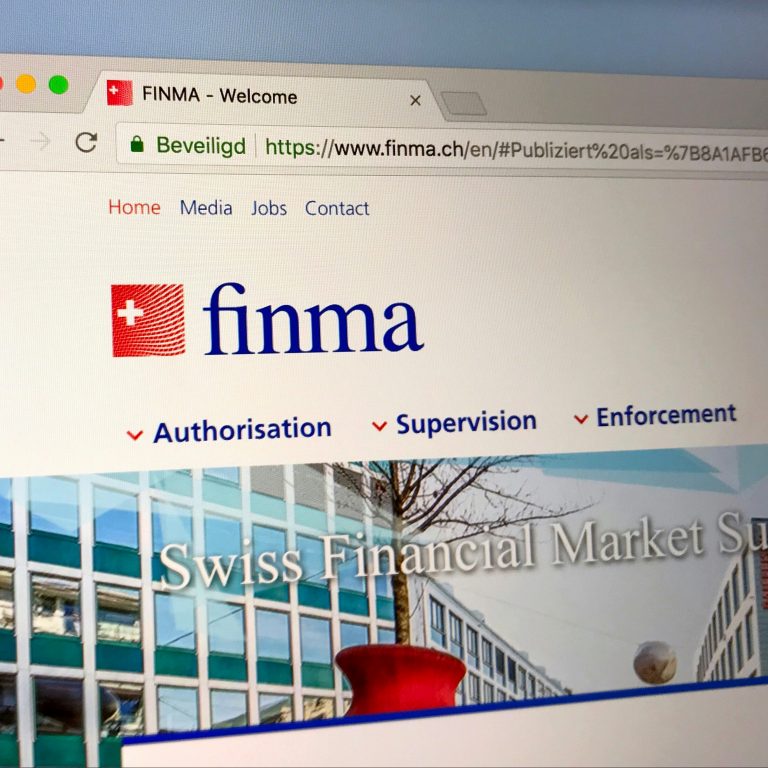
Crypto-asset companies can now apply for licenses to handle as much as 100 million Swiss francs ($100 million) in public deposits under new regulations published on Dec. 3 by Switzerland’s Financial Market Supervisory Authority (Finma). The development underscores the European country’s efforts to promote technological innovation, as in the past only commercial banks were allowed to receive such large deposits.
Also read: Australia’s Financial Regulator Grants License to Bitcoin Exchange Coinzoom
Companies Cannot Re-Invest or Pay Interest on Deposits
There is a catch, however. Blockchain and cryptocurrency-related businesses that are granted the fintech licenses to manage large amounts of investor funds “may not invest” or “pay interest” on the deposits, according to the new guidelines, which go into effect on Jan. 1, 2019.
 Finma has also set out stringent fiduciary and operational requirements for applicants. For example, cryptocurrency startups must submit clear documentation describing their business, target market and location. The regulator also requires full disclosure about board members, including their home addresses and any record of past criminal activity.
Finma has also set out stringent fiduciary and operational requirements for applicants. For example, cryptocurrency startups must submit clear documentation describing their business, target market and location. The regulator also requires full disclosure about board members, including their home addresses and any record of past criminal activity.
In addition, shareholders that directly or indirectly own 5 percent or more of the issued capital of a company must be disclosed to Finma. The same applies to foreign shareholders that hold equivalent equity stakes. Finma said that companies must submit any information on agreements, such as shareholder deals, and any “other ways in which the applicant may be controlled or materially influenced.”
“The license application must contain a detailed justification,” it added. “All relevant information must be documented, and changed documents must also be submitted with changes tracked.”
Boosting Innovation, Stemming the Flow

The fintech license was created after the Swiss parliament amended the Banking Act earlier this year, in a move aimed at boosting innovation within the cryptocurrency industry. In February 2017, Switzerland’s Federal Council released three measures for consultation to promote innovation in the financial sector and remove barriers to market entry for financial technology companies.
Two of those measures — the extension of the holding period for settlement accounts and an authorization-exempt innovation area, or sandbox — went into force on Aug. 1, 2017. And with the announcement of the new legal amendments, it is now possible for the third measure — a new authorization category with simplified requirements in the Banking Act — to take effect on New Year’s Day. In addition, the sandbox will be extended to include crowdlending business models, under which public funds of up to $1 million in total can one day be brokered for commercial and industrial purposes, as well as private consumption.
A number of countries in continental Europe are now coming to terms with the loss of numerous digital currency businesses to competing, offshore jurisdictions such as the British Virgin Islands, Gibraltar and the Cayman Islands, where regulation is less strict. But Switzerland, with its crypto tax haven of Zug, appears intent on stemming the flow.
Progressive Stance
The country has taken a progressive stance toward cryptocurrencies by legalizing their use and formalizing crypto transactions in a range of different contexts. But some crypto projects still struggle to open bank accounts, and cryptocurrency-focused bankers and investors still complain about a relative lack of regulatory clarity, as it remains unclear whether cryptocurrencies can be considered legal tender in certain contexts.

Switzerland sees virtual money and blockchain technology as strategic innovations in global finance. It is therefore determined to maintain and expand the jobs it has to offer in the field. The country’s tax regulator views cryptocurrencies as assets that should be subject to wealth taxes and declared on annual tax returns.
According to reports, Zug — also known as “Crypto Valley” — ranks favorably among the most crypto-friendly destinations in the world, boasting more than 400 crypto businesses. Four of the 10 biggest ICOs in 2017 were registered in Switzerland, which is more than any other country, according to a report by PwC.
What do you think about the Finma decision? Let us know in the comments section below.
Images courtesy of Shutterstock and Coinzoom.
Express yourself freely at Bitcoin.com’s user forums. We don’t censor on political grounds. Check forum.Bitcoin.com.
The post Finma: Crypto Startups Can Handle up to $100M of Deposits in Switzerland appeared first on Bitcoin News.
via Jeffrey Gogo

0 comments:
Post a Comment